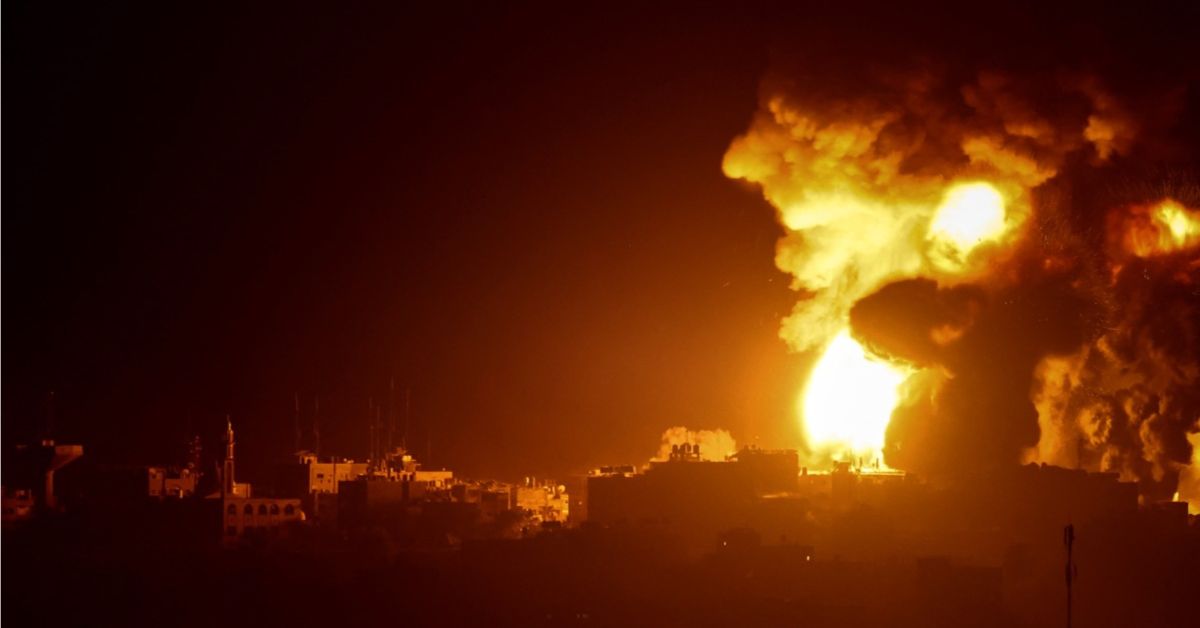DUBAI, UAE — The recent escalation of conflict in the Middle East could pose a mild recession risk to the global economy, according to experts at Oxford Economics. In their forecast, they assume that the conflict between Israel and Hamas will not escalate into a more widespread regional conflict.
“The upward revision to our oil price forecast is relatively limited — we now expect oil prices to be around $4 per barrel higher at the end of Q1 2024 than we assumed before the conflict,” they said.
The report also anticipates that outside the Middle East, which accounts for only around 4 percent of global GDP, the impact on growth and inflation will be minimal. Nonetheless, concerns over an intensification of the conflict are mounting. The firm has modeled two scenarios: one moderate and one severe.
Also Read Exclusive reports on Gaza-related developments
The severe scenario presupposes a substantial energy supply disruption, with global oil supply contracting by around 6 percent and oil prices spiking to $150 per barrel in Q1 2024. This could lead to a significant slowdown in global growth. However, the pace of expansion would only dip marginally below the rate of population growth, which is a common benchmark for a global recession.
The moderate scenario assumes that the supply disruption is about half that of the severe scenario. Global oil supply would fall by nearly 3 percent, and oil prices would rise to $120 per barrel. Financial markets would weaken, with a 6 percent decline in stock markets globally. Monetary policy is expected to stay in line with baseline forecasts.
At A Glance * Mild Recession Risk: Oxford Economics warns of a potential mild global recession due to Middle East conflict. * Oil Price Forecast: Prices expected to rise by $4 per barrel by Q1 2024, assuming no widespread regional conflict. * Minimal Global Impact: Outside the Middle East, impact on global GDP growth and inflation likely to be minimal. * Two Scenarios: Experts model moderate and severe scenarios, with oil supply disruptions of 3% and 6%, respectively. * Oil Price Spike: In severe scenario, oil prices could spike to $150 per barrel, leading to a global economic slowdown. * Equity Market Recovery: Financial markets expected to recover within six months, following historical recovery trends. * Strategic Reserves: Diversification and strategic reserves mitigate the severity of oil supply disruptions. * Global GDP Impact: A peak hit to global GDP by mid-2024 of 0.4% in moderate scenario, 0.8% in severe scenario. * Advice for Businesses: Businesses and investors should prepare for potential risks, including hedging against oil price rises. * Policy Implications: Policymakers urged to have strategies ready for economic support and conflict resolution efforts.
These scenarios indicate a historically significant level of disruption to the global oil supply. In the moderate scenario, the disruption is comparable to the 2003 Iraq War, while the supply impact in the severe scenario is nearly as substantial as that following the 1973 Yom Kippur War.
“The scale of the increase in oil prices is less dramatic than in several key historical episodes, however. This reflects our view that the fallout from any major disruption to oil supply today should be far less severe, given the declining energy intensity of production over recent decades, greater diversification of supply beyond the Middle East, and the stockpiling of strategic reserves,” the report suggests.
As the World Bank notes, other factors, such as the development of oil futures markets, may also have contributed to the reduced vulnerability of the global economy to disruptions in the oil market.
Overall, oil prices peak quickly at around 30 percent above our baseline forecast in the moderate scenario and are roughly 60 percent higher in the severe scenario.
The financial market fallout from the escalation of the conflict between Israel and Hamas is also less substantial than in previous key historical episodes, consistent with the less marked response in oil prices.
The 12 percent equity price fall in the severe scenario is about three-quarters of the decline seen initially after the Iraqi invasion of Kuwait and the Yom Kippur War.
The weakness in the equity market in our scenarios is also relatively short-lived. Within six months of the conflict escalating, stock markets have largely returned to the levels envisaged in our baseline forecast. While the effect on stocks is smaller and far less protracted than during the Yom Kippur War, the pace of recovery broadly matches the trend seen in 1990.
Global economic impact

The global economic impact would be significant. Oxford Economics’ modeling suggests a peak hit to global GDP by mid-2024 of 0.4 percent in the moderate scenario and 0.8 percent in the severe escalation scenario. Except for some commodity producers buoyed by higher oil prices, the pace of expansion falters worldwide.
However, assuming the period of disruption is not protracted, any global recession would be mild and fleeting. Even in our severe escalation scenario, global growth only dips marginally below the rate of population growth — a common benchmark for a global recession.
As disruptions in the energy market ease and the spike in oil prices unwinds, financial markets quickly rebound, restoring confidence among households and businesses. By the latter half of 2024, global growth has already resumed the trajectory projected in our baseline forecast.
More broadly, the economic fallout, such as the decline in US GDP in our severe scenario to a level 1.1 percent below our baseline forecast, is less severe than what was experienced following major oil price spikes in the past.
Implications for businesses and investors
Businesses and investors should be cognizant of the risks posed by an escalation in the Middle East. It is crucial to monitor the situation vigilantly and be prepared to take action if necessary, such as hedging against rising oil prices or reducing exposure to volatile assets.
Implications for policymakers
Policymakers should be ready to address a potential escalation in the Middle East. They need to have strategies in place to bolster economic growth and alleviate the effects of higher oil prices. Additionally, they should engage in efforts to resolve the underlying conflicts in the Middle East to diminish the risk of future escalations.








